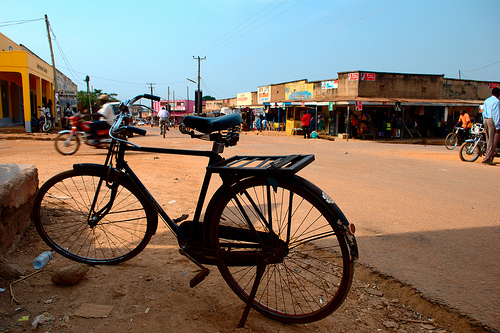Did the Ministers resign? No. They stepped aside. The legal implications are different since one would be to relinquish office while the other is simply to absent oneself from office to allow for time to have their name cleared. There is a caveat here on “stepping aside” here though. If a public official had instead been indicted formally on graft charges (which remain allegations pending a trial to preserve their presumption of innocence) they would be required to stay away from office, including have no contact with people they may otherwise influence over the allegations made against them. In court today a Magistrate ruled that the three accused need not be barred from office pending their trial- so the decision to step aside may not have the same impact as an indictment would nor the finality of a resignation. It becomes merely a statement of good will and so we are left with an equally important task to weigh the strategic and political implications of the decision of the three ministers, Sam Kutesa, John Nasasira and Mwesigwa Rukutana to step down.
While they may not have “resigned”, by stepping aside, the Ministers have made a major political splash. One of the limitations of coverage thus far of this saga is that there is sparse political analysis even though its obviously about politics. We may yet return here to how this episode relates to Uganda’s inchoate political transition.
Anyhow here is a stab. Apparently the ministers had been persuaded by the President the previous day to stay in office. They did not. The three are considered very wealthy individuals at the street level, insiders in the NRM and strong willed. If their displeasure is based on a sense that they are being persecuted, or that this is really politically driven, then their out-of-court response will be worth watching. The last time we watched a hustle between powerful insiders was the 10-week “insurrection” against Prime Minister Amama Mbabazi that pitted him against Hon. Kahinda Otafiire and Hon Jim Muhwezi. Their flexing of muscles produced a discernible tension within the wider polity, within the NRM as well as in the institutions of government. A cabinet re-shuffle soon showed which side had won while drama over an alleged robbery at a bank at Garden City- reportedly linked to these rivalries showed it could get really ugly.
The “stepping aside” also signals to other Ministers, particularly the PM who has been in the eye of the storm for several years now – within his party, that they too can show the same charity. Either way it remains a weighty event in the resignation scarce halls of Uganda’s political class and its civil service. Lets watch the space.
Are Parliamentary resolutions binding?
It is tricky. Ideally, the Executive should heed Parliamentary resolutions because its support amongst Mps is important. This has not always been necessary in Uganda. However the present environment where ruling party Mps basically rebelled suggests that the Executive accustomed to running roughshod over Mps and using his majority liberally will be treading softly. The political arguments for the Executive cooperating with Parliament include that at the start of the present term, the President proposed an ambitious legislative agenda including seeking the revocation of the automatic right to bail. This including other goodies often stuffed in omnibus constitutional amendment bills may be hard to achieve after the events this week especially if Parliament led by an insurrection of ruling party Mps becomes unruly. My guess is that it will tread a middle ground on the demands by Mps supported by the nature of Parliamentary resolutions, which have no force of law. For Parliament to affect the actions of the Executive it would need to fall back on making new law or amending old ones.
Sure the House has a constitutional obligation to ensure the rule of law, transparency and accountable government but its instrument for biting the Executive is mainly law making. Within the context of their present demands, like the halting of the making of new oil agreements and the delay of the Tullow farm-down, it would require the passing of the new bills, which the government promises to bring to the house or the repeal of the Petroleum Exploration and Production Act. The latter gives the Minister of Energy power to enter into contracts in the oil sector in such terms and conditions as he or she sees fit. That power does not expire because of a Parliamentary resolution. Additionally the contractual obligations of the government under its present agreements cannot be banished by the resolutions as contracts are binding and have terms. I cannot also see how a Parliamentary resolution can affect the present commitment of the government and its partners because it would have the effect of acting retrospectively in variance with an established principle in law and natural justice that new rules are not applied retrospectively. Lastly, there are natural justice issues.
While the Mps have been heard, their accused and the companies have not. The upcoming commission of inquiry will likely be the arena for that so the bondage of a resolution may have limited room. In any case it proposes to hold government accountable for future acts that have yet to be done. The good news as the lead petitioner Abdu Katuntu told me the night of their decisions is that Parliament has laid the framework of how government aught to act and further reserved itself a right to budge in with its own investigation. Personally am happy about the resolution to forbid confidentiality clauses in keeping with best practices in the industry.
What will happen to the Tullow farm-down?
There must be some panic within Tullow now. The allegations of bribery are fairly serious even though this road can only end in a fine. The company however must complete its farm-down in earnest. The last hitch was the demand by President Museveni that stabilization clauses within the PSA’s be removed. So far am informed their counter offer was to lift protection only in issues of environment and human rights (which are governed by Acts of Parliament like the NEMA Act which contracts cannot supersede). This may not be enough. Tullow is vulnerable because its Ugandan assets have other suitors perhaps including its own partners Total & CNOOC. If the farm-down fails its option is a lawsuit but the government may calculate this as the cost of doing business with larger companies like CNOOC. It may in the short-run harm the reputation of Uganda if it fails the farm-down and increase its political risk profile. If I were to have a say in the matter, the farm-down would continue but if the relationship between the Irish firm further deteriorates, its production licenses can be revoked at a later date. At the commencement of an industry like this as in any other, reputation is important.
Where did the forged documents come from and what do they mean?
This is an interesting question. The story I was told by Andrew Mwenda, who has been mentioned in Parliament several times with regard to them is that over 13 months of cooperating with various organizations including the Nation Media Group, Platform UK and Global Witness did not yield evidence that actual transactions had occurred. However it appears that the allegations emerged in an environment where actual money was changing hands causing real interest. The most interesting story I have heard about this is a decision by the Police chief Kale Kayihura to deploy a force to arrest Hon Sam Kutesa over these allegations only for his men to discover the FM was guarded by military guards. Attempts to withdraw the guards failed after word from on high came that the Minister should be left alone. It appears that the Public Prosecutor himself had looked at the documents and dismissed them at the same time. Who would have forged them is a story for others to tell. The tranche of documents however has had two effects worth discussing. One is that it casts the net wider in the kind of deals that maybe going on in this sector. Having been managed tightly by a few institutions like the Ministry of Energy, Finance and the Petroleum Exploration and Production Department and having no formal governing organs like a National Oil Company, the sector has been vulnerable. These allegations and an inquiry will likely change that. Secondly it has given Uganda a taste of the nature and risks of competition between multinational oil companies. These alleged forgeries are a part of the kind of commercial espionage that could thrive in the wake of weak institutions. I recall that at the height of the ENI Spa/Tullow battle, the Italian company announced a sweetener (free money) of USD 300 million besides the tax it would have paid. It was also reported that ENI spent close to US$ 20M in pursuit of the Uganda deal. There was clearly a lot of money sloshing around regardless of the fake trail. Right now the company most vulnerable is Tullow.










